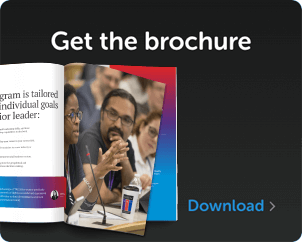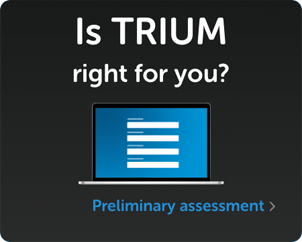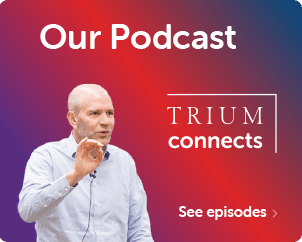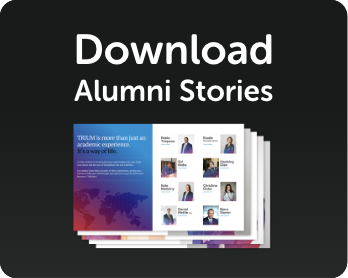
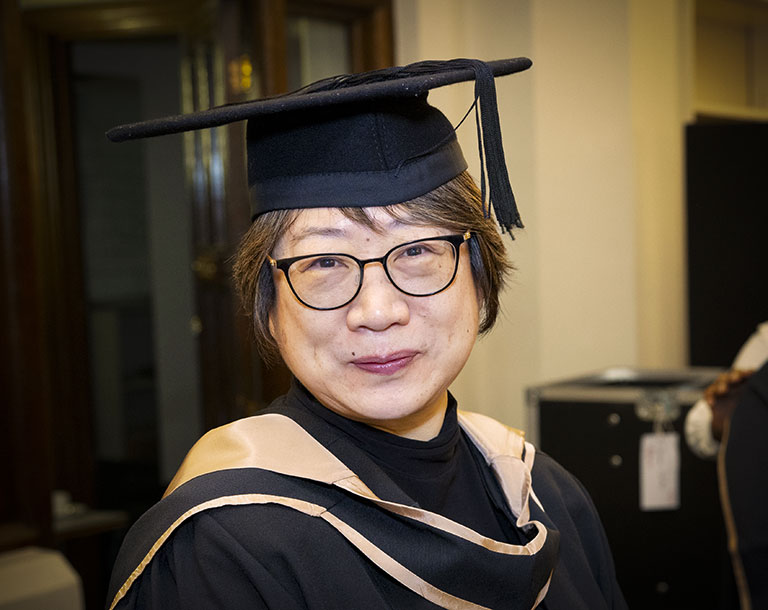
Xiaobing Qian
Xiaobing Qian (Class of 2024)
Chief Development Officer at Degron Therapeutics
“My long-term professional objective has been to advance novel therapeutics to bring hope, improve health, and address high unmet medical needs in patients,” says Xiaobing Qian.
In her role as Chief Development Officer at Degron Therapeutics—a cross-border small biotech company with teams in the United States and China—she wears many hats in order to accomplish that goal: she manages research and development activities, plans clinical development and regulatory submissions, collaborates with medical doctors on clinical trials, and fundraises from investors. She also mentors and grows teams, evaluates new hires, and manages expert consultants to advance the projects.
Xiaobing recently took time from her many responsibilities—and as she prepared to graduate from TRIUM—to discuss her experience as a woman in STEM, how COVID brought an immediacy and clarity to her goal of pursuing a global EMBA, and how a conversation with a classmate made her rethink what she thought she knew about China.
Your sons have teased you about how many years you spent in school before you got a “real job.” After earning an undergraduate degree, then going to medical school, graduate school, and getting a post-doc, they have a point! What motivated you to also seek a global EMBA?
Medical innovations are happening at warp speed across the globe. My short-term professional objective is to help entrepreneurs rapidly develop and advance their innovative therapeutics.
I applied to TRIUM because I believed it would provide an invaluable educational experience to enhance my impact as a global business leader. I was eager to contribute my unique perspective to the discourse and professional development of my fellow students. I also wanted to learn more from other business thought leaders.
COVID accelerated my “why now.” COVID changed all our lives, and for me, brought a profound realization of interconnectedness of people and businesses into a sharp focus. At the start of the pandemic, I was working at a biotech company in Cambridge, and we have clinical trials going on in Germany, Canada, Australia, and many parts of the US. It raised the questions: how do we manage patient safety in such an unprecedented health care crisis? How do we continue cross-border collaborations when the rules and regulations change and become more diverse across different countries and regions around the world? How to anticipate and manage business risks in the future? Can we apply the lessons, new technologies, and newfound connections to benefit.
At the time of this writing, you are about to graduate. Can you give insight into how what you’ve learned so far has impacted your work? What are the immediate takeaways?
I have already reaped a return on investment as I’ve been listening to the lectures and doing homework with my classmates while working on the Capstone business models. Many of the lessons I learned at TRIUM have an immediate impact on how I lead, manage, and grow Degron Therapeutics.
I also found immediate changes in:
- Leadership styles in different cultures;
- Application of AI in business (we started to use ChatGPT in the classroom in Module 2);
- Accounting and finance, particularly how to effectively manage cashflow;
- Multi-dimensional negotiation and styles of negotiation that lead to win-win;
- Doing business in Asia, especially how to lean on relationships while adhering to rules and standards.
Your education pursuit has taken you around the globe: from Peking University Medical School to the University of Illinois College of Medicine in Chicago, to the University of California, San Francisco and now to TRIUM. What did TRIUM add to your already global experience?
TRIUM is very unique with its deliberate selection of a diverse student body. Our cohort consists of more than 40 people from over 30 countries, in different industries, stages of their careers, and with varied expertise in finance, tech, pharmaceutical sciences, government, and more. My first study group was comprised of an African government official and business leaders, European executives, Middle East regulatory policy gurus, and a Pakistani general turned entrepreneur. In this miniature “united nations,” we were able to find common ground, collaborate and be successful together. It gives all of us hope.
The LSE module was a particularly unique and valuable part of TRIUM as it gave me a greater appreciation of the global economy and global politics. The professors took us on a historical journey of the impact on industrialization, wars and conflicts, globalization and deglobalization, supply chain disruption, and they always dove deeper than the immediate events to the roots of the issues. The course on the global climate crisis inspired me and other classmates to choose renewable energy as the theme for our Capstone Project.
It sounds like despite your vast international experience, you still gained a new, expanded perspective on global business.
Yes. An a-ha moment for me was the realization that I have been looking at China with colored glasses on. This realization came during a conversation with one of my classmates (a Westerner) who worked in China. And by the time I finished the LSE module, I’d realized how superficial my understanding of the changes in Chinese society, economics, and the relationship with the rest of the world were, and how much had changed in the last two decades.
What perspective can you share as a woman in STEM? What progress have you seen since your career began, and what progress would you like to see? Do you have any advice for women entering the field?
As a woman in STEM for over 30 years in the US Biotech setting, I really do not see entry into the field or the “glass ceiling” being issues any longer in most places. We now have many women in leadership positions as board members, executives, and heads of their departments. One thing we can continue to do is provide internship opportunities and mentorship to young woman who are interested in a STEM career.
To women just entering the field, I would like to say: the STEM world is not for the faint of heart. To be successful in it, one must go through years of training, and it requires constant learning and problem solving. Failure is as common as success, if not more. So, one must learn to get over disappointments quickly.
It is also most rewarding. We are “birthing” novel ideas, often in a very collaborative setting with others. Some of these ideas rapidly turn into products, others may enable a major advancement later. Remember to celebrate each insight, each breakthrough, and the contributions you make.
How would you describe your TRIUM experience in three words?
Rigorous.
Accomplished.
Beginning.

